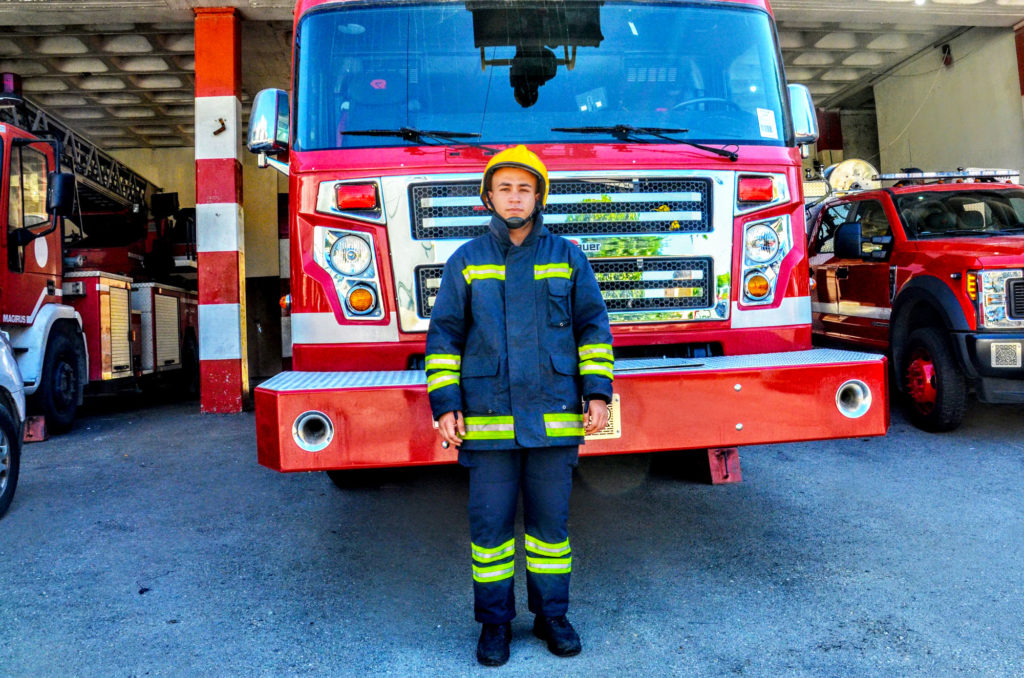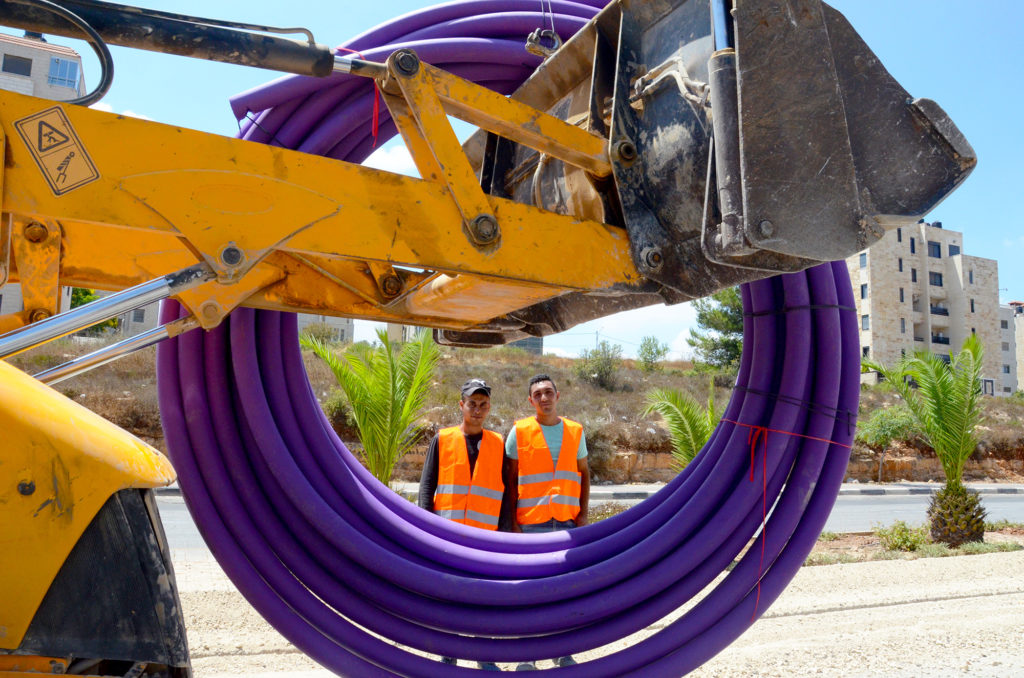Feb, 2009
Living in a desert can be harsh and it is not made easier when you are confined by checkpoints and permits.
Yet, as desert villages go, An Nuwei’ma, just outside Jericho in the Jordan Valley, is blessed, for it has water.
The spring water of An Nuwei’ma is channeled to the village and the fertile fields via open canals. This works rather well, but it has two major drawbacks. Firstly, the water is open to contamination by both man and creature, causing disease and suffering. Secondly, in the fierce desert climate with its scorching sun and dry air, open canals suffer from great water losses through evaporation. As much as 40% of the water can disappear into the air on its way to the end users.
Luckily, this is a problem of the past. Thanks to a USAID-funded Anera project, the villagers of An Nuwei’ma no longer have to drink potentially unhealthy water. The water now travels from spring to village in enclosed and buried pipes.
Amina, a mother of eight, is one of the approximately 2,000 villagers who benefits from this project. We meet her just before Christmas, a few days after the new water system was connected. She had been feeling ill for quite a while, and believes it was the drinking water from the open canal that was to blame. Now, however, she proudly shows us how much cleaner the water is that flows from the taps in both her kitchen and bathroom.
One of her sons, 36-year-old Majed, assures her that the new water is much better. He remembers the ground-breaking ceremony that was arranged for the project in June, and thanks Anera for contributing to the well-being of his mother, and to the village as a whole.
This project is part of the Emergency Water and Sanitation (EWAS) program. Through the project, close to 5,000 meters of water pipes were installed, as was a water pump. The installation created 1,000 employment days for local contractors and the total cost was $233,300.


